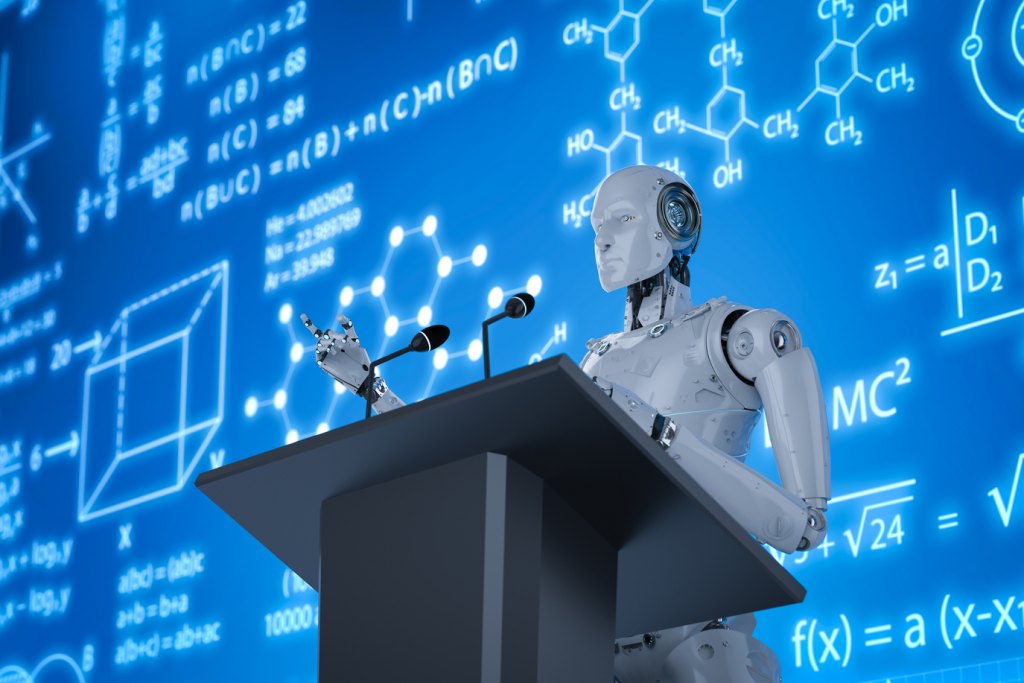Several technological innovations in different stages of development will combine digital, material, cognitive, and social realities in new ways. Such interaction requires unprecedented integration of educational, digital, environmental, and industrial policy, changing the future of education.
JRC report On education technology’s future: trends and policy implications identifies technological innovations that could change pedagogy and education in the medium and long term.
Grammar, logic, rhetoric, arithmetic, geometry, music, and astronomy were once the foundation of education, but in the age of generative AI, writing, mathematics, communication, and world knowledge must be rethought.
New connectivity infrastructures, immersive technologies, digital credentials, data, and generative Artificial Intelligence (AI) are examined in light of how students learn and develop new knowledge, attitudes, and skills.

Technology Integration in Education
Because of its ability to improve accessibility, engagement, and outcomes, technology has evolved into an indispensable tool in the field of education. Educators are making use of a wide variety of technological tools, ranging from interactive whiteboards to online marketing platforms, in order to enhance the learning experience and accommodate a variety of learning styles.
Global Shifts In Education
Educational institutions and systems worldwide are refocusing on future skills. The realisation that traditional education cannot prepare digital natives for modern life is driving these changes.
Teaching and learning innovations are led by students and teachers. In the digital age, creativity, collaboration, and communication are essential. Modern learning patterns primarily support OECD project “The Future of Education and Skills 2030.” The goal is to give students the knowledge, skills, and values to change the world. Professional development programs that prepare teachers to teach digital natives by seamlessly integrating technology into the classroom are also needed for the future of education.
We can create an educational ecosystem that prepares teachers and students for the digital age by embracing technology, promoting digital literacy, encouraging collaboration, and giving teachers more control over their classrooms. Modern educational tools help students and teachers navigate an ever-changing world and contribute to society. Changing educational models and implementing active learning policies are the best ways to educate and inspire future generations.
Key Future Education Strategies
To successfully transform educational models and integrate e-commerce capabilities, EdTech leaders should prioritize privacy and security protocols to protect sensitive student and faculty data. To ensure accessibility and inclusion, interfaces must be user-friendly and include features for different learning styles.
Leaders should also promote research and evidence-based practices and stakeholder collaboration to improve educational tools and e-commerce integration. These strategies can help EdTech leaders transform education for future generations.
EdTech is creatively redefining teaching paradigms, including how e-commerce is integrated into the educational experience. Learning to adapt to changing times, including the digital marketplace, is the future of education. Education is the key to preparing students for complex, unknown challenges, and integrating e-commerce elements into educational platforms can enhance their readiness. We prepare a more creative and adaptable generation to navigate and shape tomorrow’s world by accepting this change.
The next Internet
New 6G wireless communication infrastructures will create a new paradigm of synchronization and blending physical and digital media. The “next Internet” will use a wider spectrum of frequencies and a ubiquitous AI-powered network of precise “sensing” devices.
Usable representations of the physical world will connect cognition, space, and action in new ways. The recent JRC report Next generation virtual worlds: societal, technological, economic, and policy challenges for the EU describes how this will increase the educational potential of sophisticated virtual worlds.
Faster networks, better computing, and lighter devices will allow immersive technologies like virtual worlds, augmented reality, and holograms to simulate learning situations that are unsafe and expensive in real life.
New technologies are changing learning assessment and competence certification. Decentralized systems like blockchain technology and micro-credentials, which certify short-term training or courses, are gaining ground in a world of continuous development and upskilling.
However, just as TCPA consent (The Telephone Consumer Protection Act) ensures that consumers have control over the communications they receive, educational institutions must ensure that students have agency over their learning experiences in light of EdTech’s far-reaching impact on the students’ privacy and sensitive data.
Data in education
The knowledge society will be transformed by large-scale education data as the datafication of education continues. Digital learning platforms have collected more learning process data in recent years.
However, ethical issues surrounding personal data processing and misuse must be addressed. Uncontrolled data flows to commercial actors and the need to evaluate the pros and cons of ‘datafication’ of education have been debated.
What about artificial intelligence?
Mature AI systems can mimic and outperform humans at certain tasks. The analysis emphasizes the lasting impact of generative AI, as automatic video captioning, translation, video summarization, highlight extraction, text-to-animation, and voice-to-synthetic video would offer many pedagogical innovations and accessibility improvements.
To maximize new learning opportunities, we must make informed decisions about which tasks to “delegate” to machines and which to keep.
Skills and Assessment
AI-based automation could affect two-thirds of jobs in the future. It will drastically change education and vocational training and the labor market.
More research is needed to understand how generative AI affects assessment and transversal skills like creativity, critical thinking, and problem solving.
The authors emphasize the need for critical evaluation of emerging technologies’ effects on teaching, learning, and education, given their potential to widen the digital divide and commercial interests’ dominance. To promote diverse educational visions, technological innovation must be regulated.
A series of JRC Digital Skills and Education project studies will examine some of these trends and innovations in detail after the report.
How is technology affecting the education industry as a whole?
AI and connectivity already improve learning. For instance, more data means better analysis and learning. Algorithms can mine and compare data from different learning contexts to find the best learning activities. Learning management systems, interactive learning environments, intelligent tutoring, educational games, and data-rich learning activities are examples. This tailored learning is possible because data matches student competence with learning activities. This applies to teaching too.
“Technology does not teach or train. Education is context-based and managed by a ‘teacher’. Technology must serve learning, education, and training goals. How we use technology matters more than what it is.
Teachers, educators, students, and employees need computer literacy training in schools and the workplace.
“The computer should be seen as a tool for problem-solving, not just a computing machine. This should be taught in schools so we can use technology to find answers to questions we don’t understand.
The development of proprietary technology packages may limit learning materials.
Regulators need standards to instruct school IT program providers to ensure technology is independent of devices and ecosystems and fully interoperable. This will allow teachers to choose the best learning experience for their students without locking schools into a system.
For digital learning, data security and privacy are essential. Data from learning may be stored and shared. Students who role play with hacked and misused online personas may be wrongfully profiled.
Conclusion
Finally, as we navigate the changing landscape of education shaped by technological innovation, we see that while these advancements have the potential to revolutionize learning, their effective integration requires a delicate balance of ethical considerations, privacy safeguards, and equitable access. Equipping educators with the right training and resources is essential to using technology to teach students critical thinking, creativity, and lifelong learning. We can use technology to make education more dynamic and equitable by prioritizing inclusivity and responsible implementation.























Leave a comment!